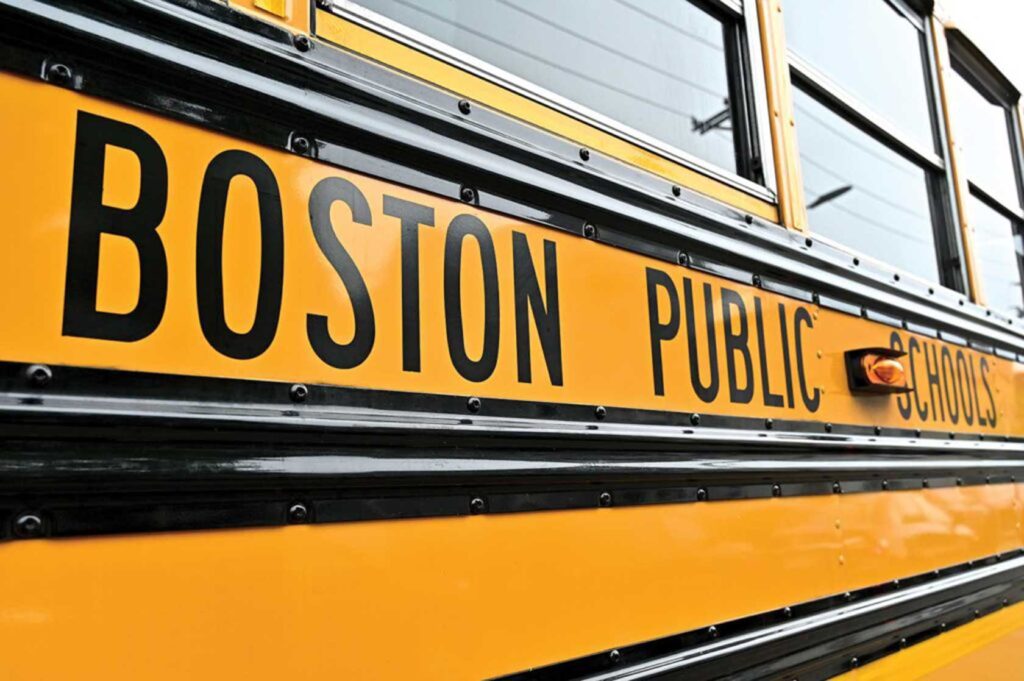BPS concludes 10-school pilot of AP African American Studies
Plans to add it to four more schools

The College Board and Boston Public Schools have just concluded their first year of piloting Advanced Placement African American studies courses in 10 Boston schools, with plans to add the curriculum to four more schools in the 2024-25 school year.
The College Board, which is a non-profit academic entity, develops and administers standardized tests and curricula used by K-12 schools nationwide as a way of promoting college readiness. In September 2023, Mayor Michelle Wu and Superintendent Mary Skipper announced the introduction of AP African American Studies into 10 high schools in the 2023-24 school year.
“Learning about the invaluable ways Black communities have shaped our country is an essential opportunity for BPS students to deepen their cultural understanding and education,” Mayor Wu said of the course. “BPS students deserve a curriculum that reflects the diversity of Boston, and I look forward to the new ways our students will engage and enrich their learning.”
The course is centered around a project-based final assessment and explores topics such as the origins of the African diaspora, civil rights organizations and the legacy of slavery. According to the College Board, the class “examines the diversity of African American experiences through direct encounters with rich and varied stories.” The course was piloted in approximately 800 schools across America and is expected to launch nationally beginning in August of 2024.
Boston school officials highlighted that through “thematic connections and critical skill development, students will explore the essential topics of freedom, enslavement, resistance, movements and debates, African empires and kingdoms, civil rights and racial uplift.”
Twelve educators are teaching this course across the 10 schools. All teachers participated in professional development training before the course, at universities such as Howard University and Western Kentucky University. Teachers also had training on a monthly basis through a consultant with the College Board.
The move has been widely praised by community leaders and educators as a step toward a more inclusive and accurate representation of history in Boston’s schools. “The expansion of AP African American studies to 10 high schools within the district allows more students of all backgrounds to grow their knowledge and appreciation of people who are foundational to this country,” said BPS Superintendent Mary Skipper.
Skipper explained that “this initiative reflects our commitment to providing a rich, culturally affirming education experience that empowers our students to explore the complexities and contributions of Black history and culture.”
The BPS schools offering the course are Boston Latin School, Charlestown High School, Another Course to College, Boston Green Academy, Boston Latin Academy, Dearborn STEM Academy, Dr. William W. Henderson Inclusion School, John D. O’Bryant School of Math and Science, TechBoston Academy and Jeremiah E. Burke High School.
“It is incredible that we are making history, and I am excited that I have the opportunity to teach the curriculum,” said Tanisha Milton, a 10th-grade teacher at TechBoston Academy. “It is important to understand the students we serve. We need to let the students know that this is not about highlighting the struggle of African Americans but celebrating their great accomplishments and contributions in spite of the struggle.”
Boston school leaders have said that educators will have the opportunity to “augment the curriculum” in order to include course material particularly relevant to Boston. BPS was also recognized by the College Board for its large-scale implementation of the coursework.
“As we look ahead to next year, we are excited to take things a step further with a new framework released for the course,” BPS officials said. Possible opportunities for the course going forward include “potential field trip opportunities that connect directly with the course in our very own city.”
The course has been embroiled in controversy since its inception, most notably the target of a public campaign by Florida Gov. Ron DeSantis against the College Board. Most recently, South Carolina’s Department of Education has decided to eliminate the AP African American Studies course from its high school curriculum, citing “significant controversy” and pending legislation.
This decision places South Carolina alongside Florida and Arkansas, which have also restricted or banned the AP African American Studies course.
The College Board released a revised framework of the course in December of 2023, after previously releasing a heavily criticized version in February 2023, building on a pilot program. The 234-page original framework received heavy backlash for topics such as Black Lives Matter, slavery reparations, intersectionality, and queer life.
The new framework is missing these topics, although The College Board has denied eliminating them from the course in order to appease critics like DeSantis. The Florida Department of Education rejected the course on Jan. 12, calling it “inexplicably contrary to Florida law and significantly lacks educational value.”
College Board CEO David Coleman said, “AP African American Studies has demonstrated its power to draw so many students into their first college-level coursework. By focusing on what fascinates young people, we can bring so many new students into the path to college success.”






